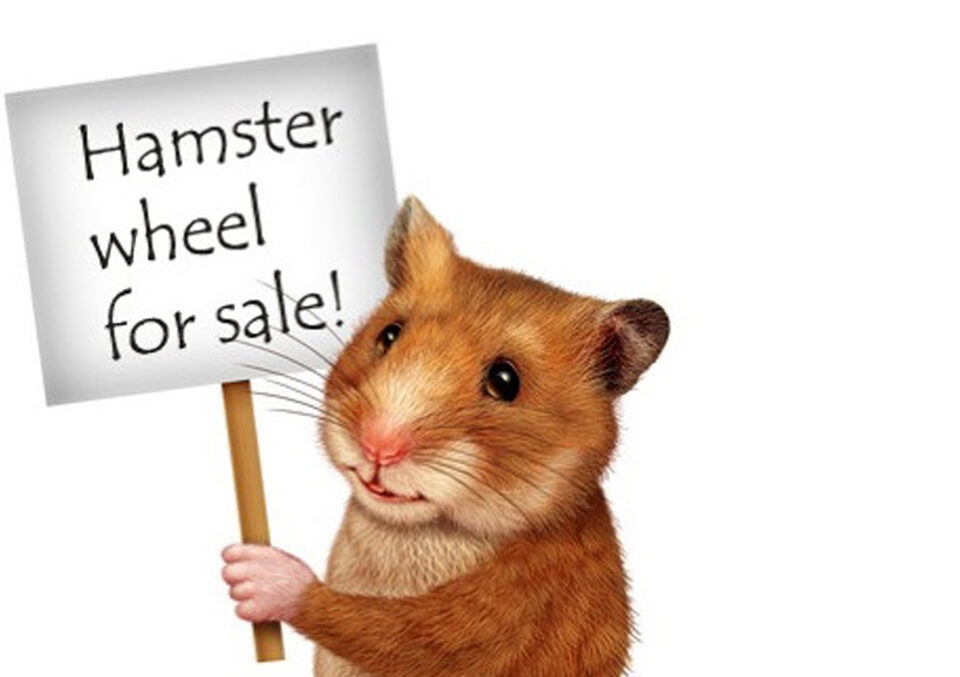
Maxie Carpenter says, “Charities Need More Outliers!” Maxie defines outliers as a data point on a graph or in a set of results that is very much bigger or smaller than the next nearest data point. When referring to an individual as an outlier, he or she is defined as someone who stands apart from others of his or her group, as by differing behavior, beliefs, or religious practices.
Here’s what Maxie Carpenter has to share personally. “I think I’ve always felt I was an outlier. I was the only boy and the oldest of 6 children. I have a unique first name that as a kid, always drew questions like “Is that a boy’s name?’ or “What kind of name is that?’ or ‘I’ve never met a boy named Maxie. Who were you named after?’
It also attracted laughter, jokes and funny name-calling such as Maxine, Maxie Waxy, Maxie Smaxie and yes, even Maxi-Pad, just to name a few. It even led to my being bullied unmercifully for two years at the age of 12, before I finally had as much as I could handle and confronted the situation, which I paid a heavy price for but learned from, as well. That’s definitely another story for another time.
In my Senior year of high school, I got a draft notice addressed to Maxine Carpenter from the Women’s Air Corps (WACS). That would have been something if I’d been accepted, huh? To this day, I still get some mail to that name or return emails from senders addressing me as a female in the text of the message because they don’t pay attention to the context of the message.
Over the years, I’ve come to embrace my name and my uniqueness. I still rarely meet anyone, male or female, with that name. I overcame most perceptions by being an above average athlete in almost every sport I participated and can still school some of those millennials on the court, if I care enough to do so. (Funny how sports always levels the playing field in our culture.)
I’m articulate, well-read, a very quick study at most things I focus on, a voracious learner, always willing to change if it’s the right thing to do and I never quit; still to a fault at times. I’ve come to accept that it’s a part of who I am.
My message to Nonprofit Leaders is this. If you feel like an outlier, you probably are. Don’t fight it for too long. I’d have embraced it years ago if I’d have had the awareness.
I actually look for opportunities to be the outlier; not to disrupt intentionally (which isn’t my nature) but to challenge what I call the RC Factor (resistance to change) that keeps people and organizations from realizing their true capacity, their ability to lead and simply to create better.
This RC Factor is the primary obstacle to Nonprofit growth and development because it’s so deeply embedded in the culture.
You can drown a doubting person in facts, but if their mind doesn’t want to be changed, facts won’t matter. The same holds true for leaders of organizations.
In fact, more facts will only make a shaking head shake more, a folded set of arms lock in more tightly, a set of squinted eyes completely close and a set of palms cover the ears.
Most people don’t want to commit to working through the doubt and having the experience because the doubt provides a false sense of safety and protection from fear and panic.
Five hundred years ago, Michel de Montaigne , a 15th century essayist, said: My life has been filled with terrible misfortune; most of which never happened. The science also points out that 85% of what we worry might happen never comes to pass.
Experience is the only teacher that will change a mind and the only thing that will enable an experience is the willingness to have it. The person with a perception will always lose an argument to the person who had that experience.
Truth Be Told, it’s time for Nonprofit Leaders to rise up and embrace an Outlier mindset. The very nature of the work we do is an outlier unto itself.
Maxie Carpenter Has a New Take on Nonprofits was written by Maxie Carpenter a consultant with Development Systems International, author and speaker, focused upon Organizational Development and Leadership Character & Behavior. Maxie was formerly with Wal-Mart for 27 years, beginning in 1973 as a stock person and eventually attaining the positions of Assistant Manager, Store Manager, District Manager, Operations Coordinator for Walmart US, Director of HR & Talent Development for Walmart US, and retiring in 2000 as Vice President of HR & Talent Development for Walmart US. He’s pursued several interests, providing an expansive experiential perspective to individuals and organizations across the country in the academic, nonprofit, corporate and small business communities. His focus has been on Organizational Structure and Function with an emphasis on Culture & Ethics and Senior Management Development in the area of Character and Behavior Assessment. Maxie’s taught as an Adjunct Professor in the Don Soderquist School of Business at John Brown University, and in the Sam Walton College of Business at the University of Arkansas. He was most recently Director of Operations for the Samaritan Community Center, the largest feeding nonprofit in the State, leaving this past December to focus on Nonprofit Consulting and Leadership Character & Behavior. His mentor, Sam Walton, with whom he directly and indirectly interacted over the course of his career, heavily influenced Maxie’s perspective with the core of Authentic Leadership. Maxie’s authored several publications, including Managing Difficult People in the Workplace: A Practical Guide to Confronting Difficult People and I Didn’t Ask You to Dance! I Asked You to Talk: A common sense, humorous and at times, spiritual approach to communication in a world obsessed with political Correctness! Maxie Carpenter is a self-described servant leader, who believes that people put you where they want you based upon how you treat them. Maxie Carpenter is the only professional in the state Certified as a Facilitator, Coach & Consultant to administer the Merit Profile™. This assessment measures an individual’s character attitudes, beliefs and commitments over ten primary leadership principles in order to recognize opportunities for improving personal leadership effectiveness. The Merit Profile also greatly improves the predictability of an organization’s human capital decisions regarding culture, talent acquisition, employee development and employee retention initiatives. Maxie is a proud member of National Association of Nonprofit Organizations & Executives. Maxie is also founder The Leadership Consortium.


